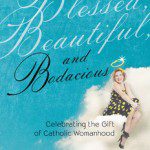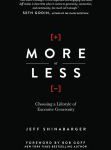Lectionary Reflections on the Fifth Sunday of Easter – April 28, 2013
Acts 1:1-18; Psalm 148; Revelation 21:1-16; John 13:31-35
Delighting in Diversity
There are moments that define your personal life and become part of the story you share with others – remembrances of your family of origin and challenges of growing up, falling in love and getting married, your discovery of your life’s work, divorce and new love, the birth of children and grandchildren, facing a life-threatening illness, and experiencing the holy in a life-transforming way. There are moments that define a nation’s life, and become part of its story, for good or ill. In the USA, we remember events such as Valley Forge, the Bill of Rights, the Emancipation proclamation, Wounded Knee, the right to vote for women, Pearl Harbor, 9/11, Stonewall, and the Civil Rights Act. Or, in a religious movement, the parting of the Red Sea, the giving of the Law on Mount Sinai, the birth of Jesus, Good Friday, Easter, Luther’s 95 Theses, the Social Gospel Movement, or Vatican II.
Peter’s encounter with Cornelius and then with the Jerusalem church leaders is one such defining moment, along with Pentecost and Paul’s Damascus Road experience, in the formation of the early church. This event is so important that the author of Acts records Peter’s description of his life-changing mystical experience twice in his account of the first years of the Christian movement. In many ways, it is the centerpiece of Acts (10:1-11:18) textually and theologically. In his encounter with Cornelius, Peter embodies the hope of Pentecost, “God’s spirit will be poured out on all flesh.” And, “all flesh” means every race, creed, gender, age group, nation of origin, and sexual identity. While Peter’s encounter with Cornelius may seem tame in our multi-cultural, pluralistic society, Peter is radically widening the scope of revelation and salvation to embrace all peoples. Today, this widening of revelation would include marginalized persons who today seek marriage equality and the opportunity to fulfill their calling as spiritual leaders.
Today’s reading from Acts 11 begins with a controversy. Conflict and resistance are nothing new in the life of the church and they aren’t necessarily bad, when carried out by people of good will who are willing to modify their positions to be faithful to God’s vision. Resistance often emerges in the interplay of tradition and innovation, or when we attempt to redefine an institution or movement’s mission.
Acts, chapter ten, initially narrates Peter’s encounter with Cornelius, a Roman military leader and his household, some of which is repeated in chapter eleven. In light of his visionary experience, Peter proclaims that “God shows no partiality” but welcomes faithful people of all nations. No doubt word of Peter’s baptism of Gentiles – and their experience of the Holy Spirit – spreads throughout the early Christian movement. We can suspect that some are delighted that the Jesus movement is going global in its embrace of Gentiles as equal partners. Others, especially leaders of the “mother church” are concerned that the gospel might be compromised by the inclusion non-Jewish persons: they believe the Jesus movement is best served if remains closely tied to its Jewish roots, defined in terms of ritual and ethnicity. These traditionalists confront Peter: “Why did you go to uncircumcised men and eat with them?” In other words, why did you risk your own ritual cleanliness to reach out to these foreigners? Luke’s description of their response with the word “criticizing” suggests that Peter had crossed a theological and sociological line in his inclusion of Gentiles as full and equal members of the movement.
In response to the theological and ethnic concerns of the Jerusalem leadership, Peter shares his life-defining – and I believe movement defining – story. The story bears repeating in Acts of the Apostles and from our pulpits. As Peter describes it, one afternoon, he goes up on a roof top for a nap, he’s hungry and the sea air relaxes him. Suddenly, he has a vision of a smorgasbord, heaped high with delicacies of all kinds. Because he’s hungry, this vision entices Peter to the dinner table until he discovers that the buffet also includes forbidden foods – pork, oysters, clams, shrimp, and lobster. Peter is appalled and refuses to eat these unclean foods, even if they come from God. But, God cuts through his objections, saying “go to the Clambake, Peter,” and enjoy some ham and eggs, or lobster tails.…..Call nothing unclean.”
Cornelius also has a vision, telling him to send messengers to contact Peter. They arrive just as Peter is recovering from his epiphany and is open, perhaps for the first time, to fully embodying the Pentecost spirit: an unhindered, wide-open, radically hospitable gospel. Peter visits Cornelius and God’s spirit fills the room – the mystical and life-transforming experience of Pentecost falls once more, this time on Gentiles and, more than that, upon a military leader who may have once been deployed to keep the peace in Judea. These outsiders received God’s spirit and the gifts that come with an intimate relationship with the Jesus the Christ. Peter realizes that they shouldn’t be shut out of the emerging faith, but welcomed as first-class citizens, brothers and sisters in Christ.
In Cornelius’ company, Peter discovers something that changes his vision of God and understanding of Jesus’ mission. He experiences a “democracy of the spirit,” that cuts across all of our artificial barriers of race, ethnicity, and culture. He also discovers that God delights in diversity and God welcomes everyone, regardless of where they’ve been on life’s journey, to be part of Jesus’ realm of Shalom, wholeness, and everlasting life.
Long before Peter Rollins’ deconstructive approach to tradition, Peter discovers that he must push his spiritual boundaries and theological dogmas to the limit to be faithful to God. He must disobey the laws of his faith – the theology and ethics he learned as a child and followed as an adult – to follow God’s vision for today. He must widen the circle of grace, breaking down boundaries of insider and outsider and clean and unclean, to be faithful to God’s grace in a pluralistic and expanding world.
Imagine disobeying God to be faithful to God. But, imagine something even wilder: God changing the rules to fit a new situation. As the United Church of Christ’s motto says, “God is still speaking.” God never stands still nor does God look backward. Nothing God does is abstract and irrelevant. When times change, God changes, and we trust that God has had a hand in the changes that often disorient us. Leaning forward toward wholeness, God invites us to be forward-looking as well. In light of the generous scope of spiritual experience, the gospel can now go global, embracing the whole earth and its peoples.
God delights in diversity! Psalm 148-150 present a world of wonders in which all creation praises God. As Psalm 150 suggests, everything that breathes is praising God – the whales off in Nantucket Sound, the stars above, the shining sun, the budding fruit trees, the fireflies on a summer evening, and people from every walk of life.
Our vision of the universe is expanding – some cosmologists speak of over 500 billion galaxies, each with a billion stars like our sun. Photos from the Hubble Telescope add, rather than subtract, to our feelings of awe and wonder. They reveal a universe that reaches beyond anything we can imagine in its complexity, beauty and diversity. Yet, this same diversity characterizes our little green and blue planet. The preacher might invite congregants to think about the wondrous variety that we also behold: rainbow colors shimmering in the sun; varieties of cultures, ethnicities, and hues; innumerable flora and fauna, and even varieties of religious experience. The preacher might also have images of diversity, ranging from two unique galaxies, to varied plant life, and rich human experience.
The radical amazement, inspired by Psalm 148-150, leads to practices of radical inclusion. If you are touched by God, then you are inherently valuable and deserve affirmation, respect, and ethical consideration.
The biological, religious, and cultural diversity, affirmed in both Acts 11 and Psalm 148, is not a fall from grace, but an avenue for revelation. As Genesis creation accounts narrate, as the universe emerged bringing forth new species of animals and plant life, with each step God proclaimed “it is good.” God parents forth diversity and nurtures ongoing diversity as part of God’s aim at beauty.
Now, diversity has been and still is a cause for conflict. In my current hometown, Washington DC, diversity of opinion often leads to governmental grid lock, finger pointing and polarizing. In various places, people are ostracized for marrying outside their religion or race, converting to another faith, and coming out of the closet about their sexual identity. Surely Jesus knew that such polarization could happen even in the movement bearing his name. Perhaps this is why he left the women and men who would be the first leaders of the Christian Way with the commandment to love one another. Listen to these words once more: if the Bible is a living word and I believe it is – they are addressed to us in our personal, professional, and congregational lives, “I give you a new commandment, that you love one another. Just as I have loved you, you also should love one another. 35By this everyone will know that you are my disciples, if you have love for one another.”
The embodiment of Jesus’ command to love – and this commandment is grounded in God’s love for us and not our own achievements – was the motive force behind the growth of the early church. Church historians note that the Jesus movement grew not only because it presented a meaningful vision of life and enabled people to trust their lives to a loving God, but also because the earliest communities embodied Jesus’ own radical hospitality in caring for widows and orphans who might otherwise become prostitutes or put out on the street, affirming women as equals in the faith, providing burial services for members and outsiders, and by supporting the sick, unemployment, and orphaned.
Revelation 21describes the emergence of God’s new creation. God is not content with isolation, polarization, and rugged individualism. God seeks an interdependent healing community in which we find wholeness in God’s embrace. While God transcends the world, God is within the world – the home of God is among mortals. It is here in the pastor’s study and in the worship space. God is here, bringing forth a new earth, providing comforting and reassurance to those who have suffered persecution.
In an expansive universe, our faith and practices should also be expansive. Diversity beckons us to grow in relationship to the experiences and practices of others. Faith is a holy adventure, advancing toward rainbow colored horizon and beckoning us to widen the circle of grace.













